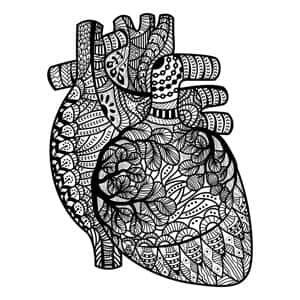
By now, it should come as no surprise that dietary choices can affect health. But do you know how your diet affects your risk for heart disease and stroke?
Meat Eaters vs. Vegetarians vs. Pescatarians:
A British study of more than 48,000 people compared meat eaters, vegetarians and fish eaters (The BMJ, Sept 4, 2019). People who include fish but not meat in their diets are also termed pescatarians (spelled pescetarians in British English). This epidemiological study was a British branch of the European Prospective Investigation into Cancer and Nutrition, aka EPIC-Oxford. Over the course of 18 years, some of the people in the study experienced coronary heart disease or stroke.
Meat Eaters Have a Higher Risk for Heart Disease:
Analysis showed that meat eaters had a higher risk for heart disease. Vegetarians had approximately 10 fewer cases per 1000 people over 10 years. Perhaps this is because vegetarians tend to have lower blood pressure and cholesterol levels. Scientists have known for years that including fish in the diet might reduce the risk for heart disease. In fact, advocates believe this works approximately as well as taking a statin drug to control cholesterol.
Vegetarians Are at Higher Risk for Stroke:
On the other hand, vegetarians and vegans were more likely to suffer strokes, with roughly 3 more cases per 1000 people over 10 years. This increased risk was primarily due to bleeding strokes. Such hemorrhagic strokes are much less common than strokes caused by blood clots in the brain, but they can be even more devastating. Fish eaters also had a higher risk of stroke than meat eaters, but the difference was not significant.
The authors conclude:
“Overall, the present study has shown that UK adults who were fish eaters or vegetarians had lower risks of ischaemic heart disease than meat eaters, but that vegetarians had higher risks of stroke.”
An accompanying editorial warns that these findings from British vegetarians may not apply to most of the world’s vegetarians who live primarily in low-income countries. Moreover, the editorialists point out, the increase in the possibility of stroke was quite small.
Citations
- Tong TYN et al, "Risks of ischaemic heart disease and stroke in meat eaters, fish eaters, and vegetarians over 18 years of follow-up: Results from the prospective EPIC-Oxford study." The BMJ, Sept 4, 2019. doi: https://doi.org/10.1136/bmj.l4897

